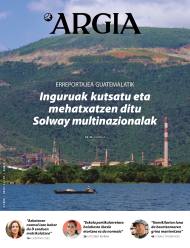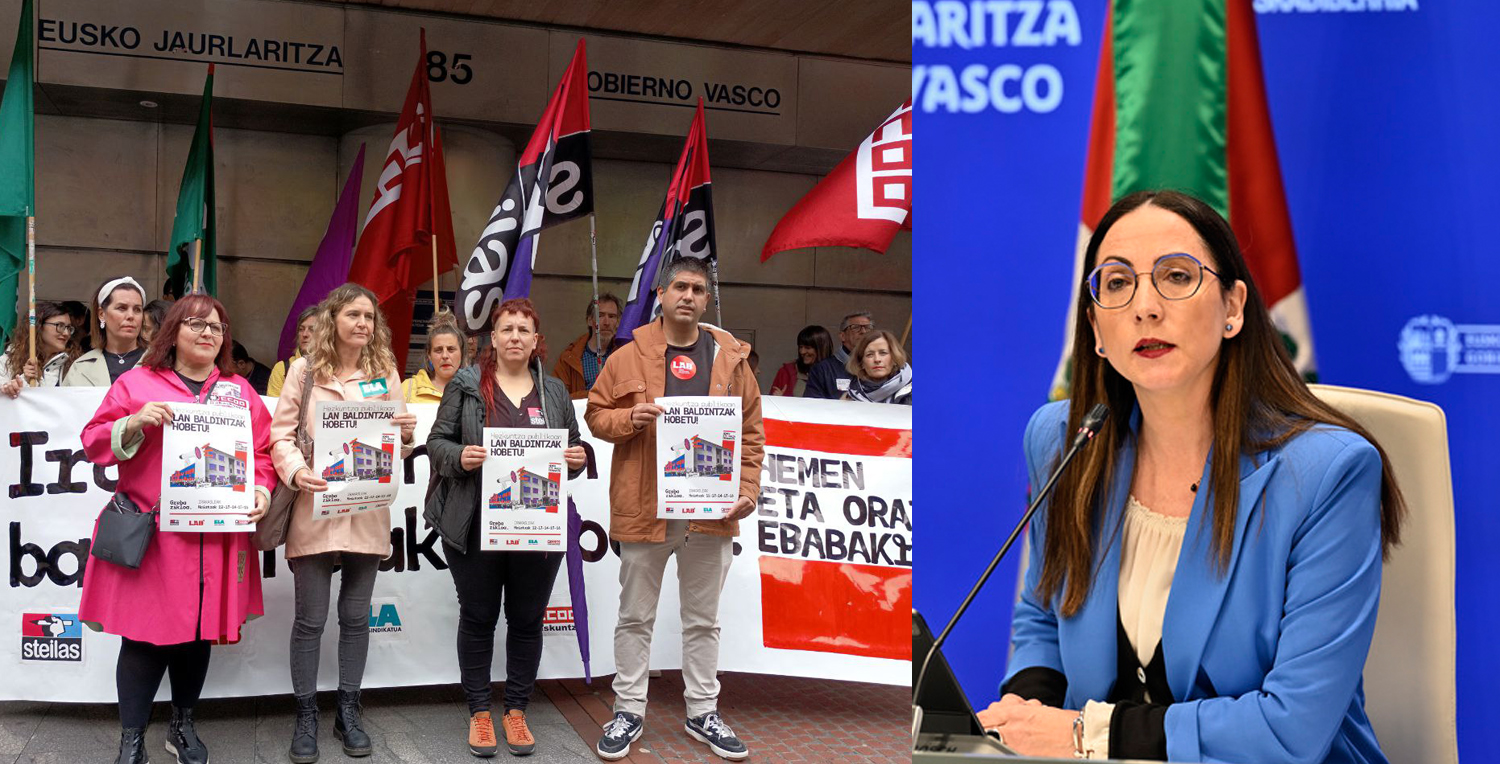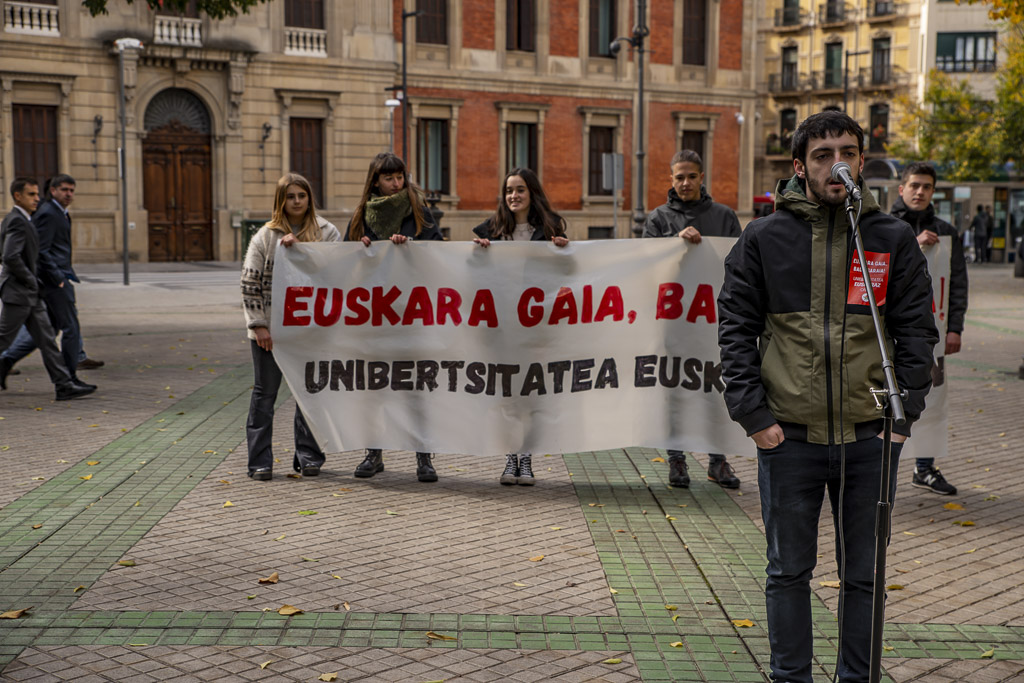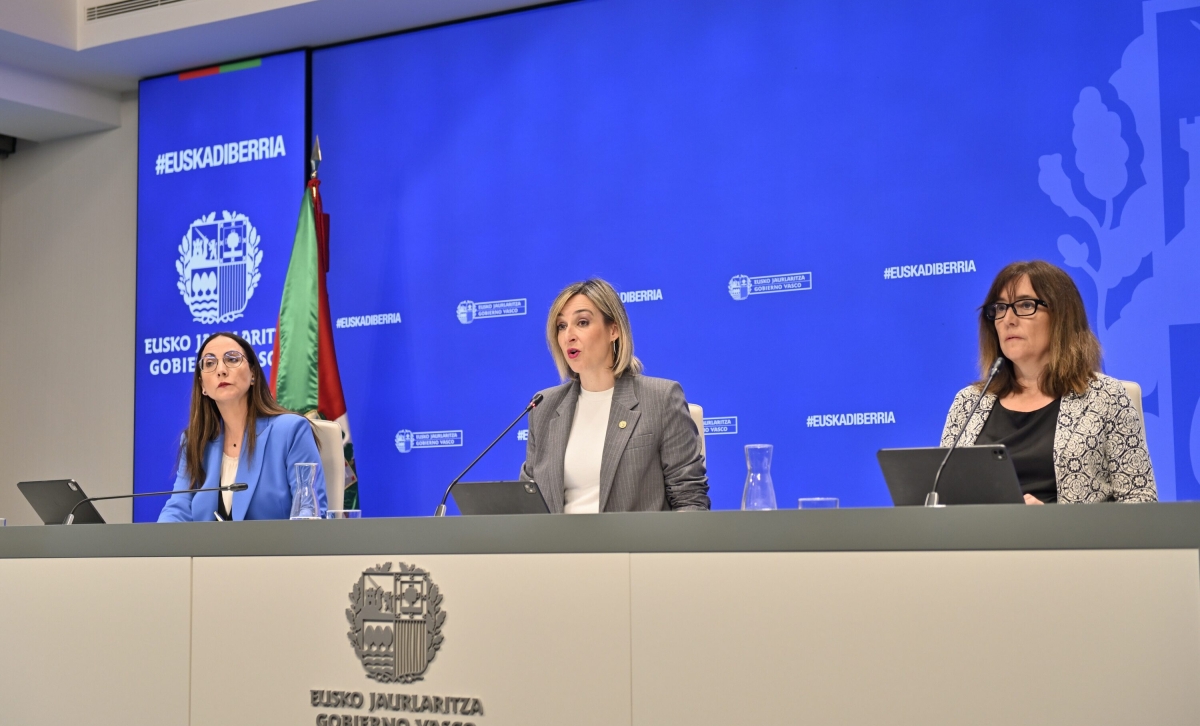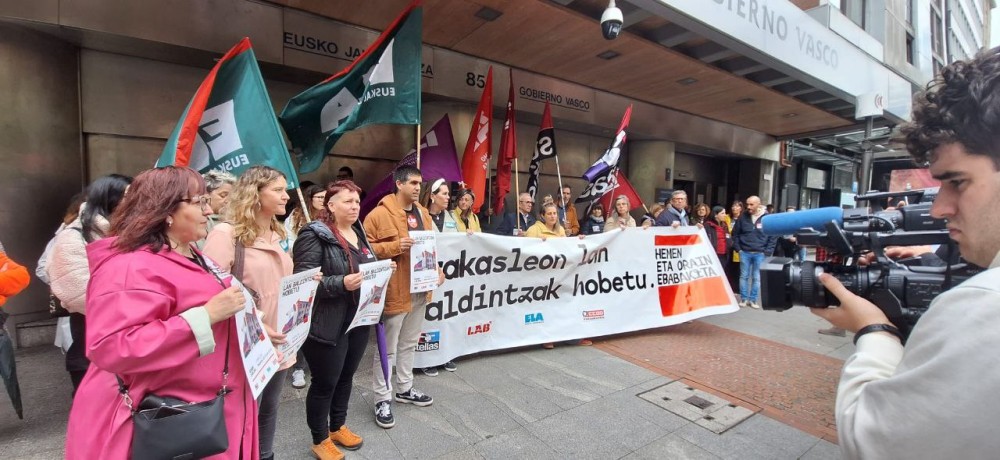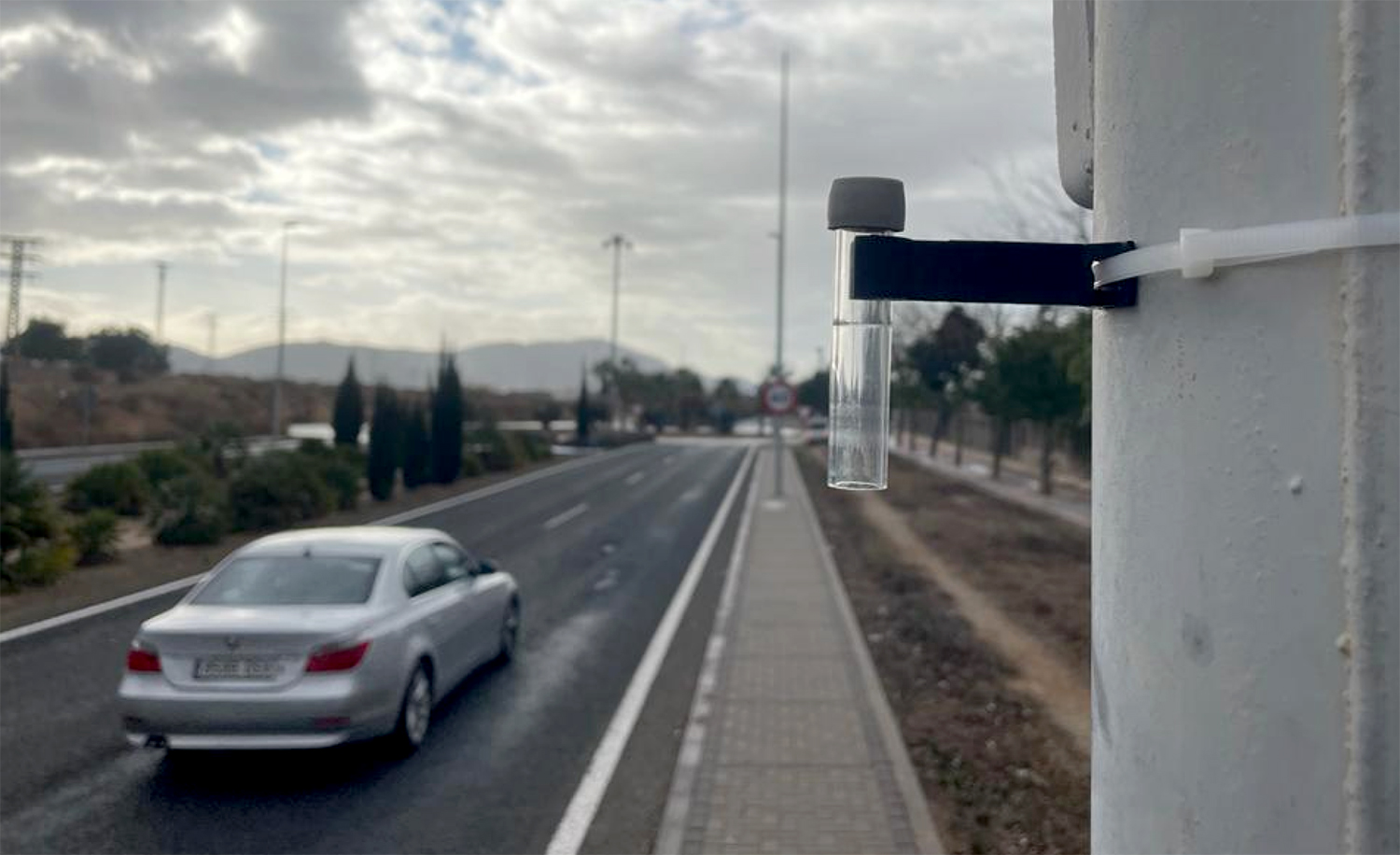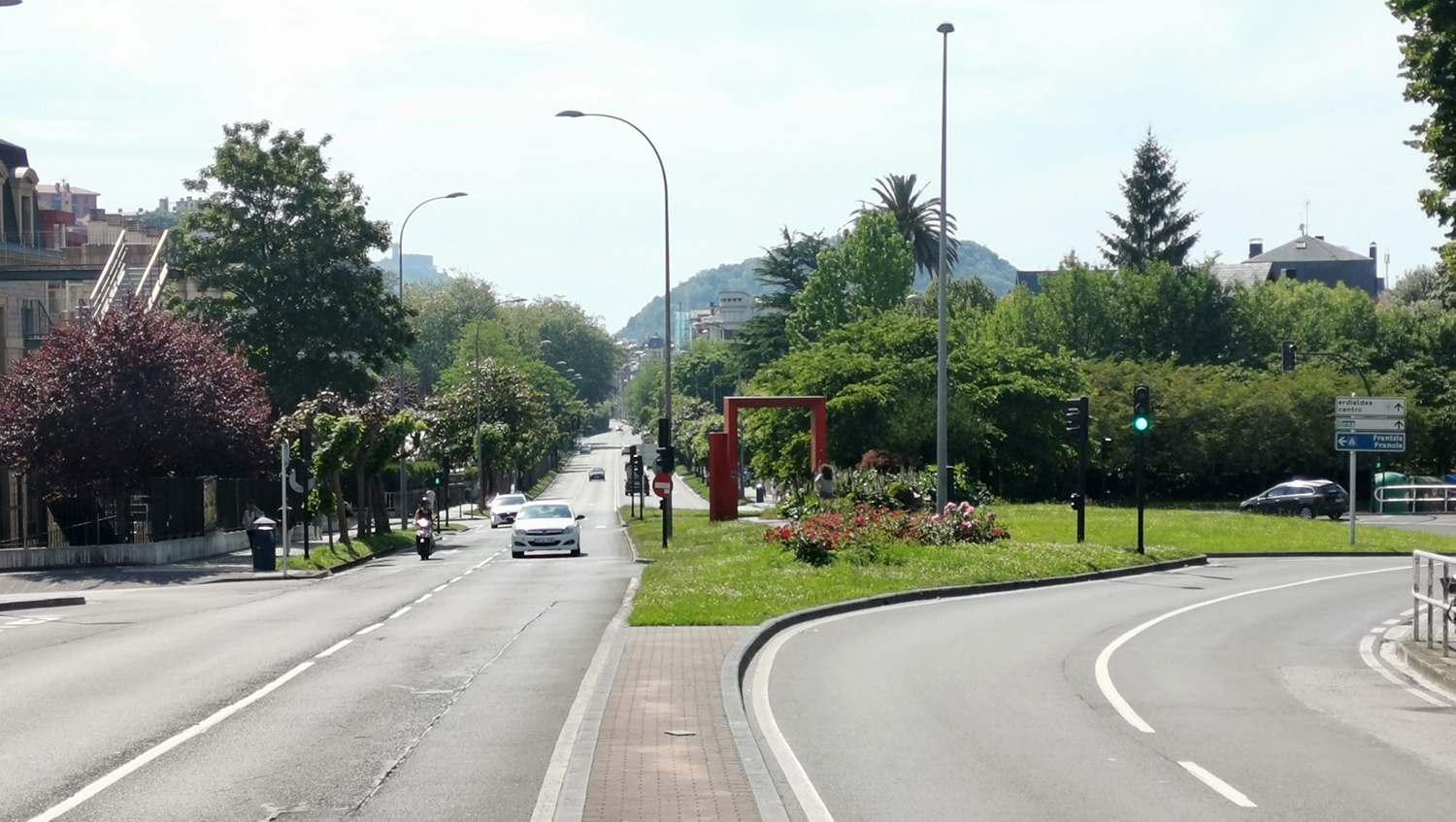"The great demand for private schools is a symptom in which something fails."
- Aitziber Ibarbia knows the students who attend private classes well. He has been teaching special classes in mathematics, physics and chemistry for about 25 years, mainly at Bachillerato. He has talked a lot about good and bad teachers, the different rhythms in the classroom, the ways of correcting tests, the comfortable students, the ratios, the difference between public and concerted centers, the role of parents, the competition that exists ... And it's clear. “It’s not enough with what is done during school hours.”

According to the study “Shadow Education in Spain”, the CAV is the community of the Spanish State with the largest number of students in private schools.
Surely, here we have more economic possibilities of sending our children to private classes, a bit higher than other autonomous communities. It seems to me that other countries and other families, with resources, could send their children. Another study indicates that the CAV is the community of the State with the lowest school failure, perhaps both go together, the possibility of going to academies and offering students this additional help may be related.
Is it normal for so many students to go to private classes?
We have to understand why so many students come to private classes: some come because they can't keep up with the teacher's pace; others have a lot of after-school activities and don't have enough time to work at home, so they come to private classes to make them faster and more effective; there are cases where parents who don't know Euskera can't help in school tasks; and there are many parents who worry right away, they send out to private classes to take a burden to see. And most of the students I have are in college because they're asked for a high average of access and they want to get that grade, but many are very good students, they're demanding, they don't need private lessons on their own.
And by answering your question directly, it's not normal for there to be so much demand in private schools. On the one hand, parents have normalized them to make their children easier, but many of them don't need them. On the other hand, it is true that there are also those who need reinforcement, and it is a symptom that something fails.
"The problem is that we are extraordinarily competitive and, in addition, we have students of different pace and level with the same rhythm and equipment"
And what does it fail? Teachers, curriculum, ratios, lack of time, parents?
Focusing on the lessons I give, some find it hard to grasp the mathematical logic, they need more time and they're lost. If a teacher has 25 students in class (in some concerts there are also classrooms of 35-40 students), and if there are mainly two rhythms, those who follow the lesson easily and cannot follow, who has to set the rhythm? Because as the school is planned, two groups are not created within the class, two rhythms are not established.
And which one of them marks the rhythm?
Normally the teacher himself has a rhythm in the head at the beginning of the course and each course carries it, regardless of whether the corresponding students fit in. For some students the rhythm will be quiet and for others too fast. In the concerted centres, for example, they have a very marked rhythm, the method.
Look, I thought that the curriculum chained more of the public school, and that some concerted centers played more flexible…
Normally, the teacher who accesses the concerted center follows the method, the project that exists in that school. If you’re a very good teacher, you’ll take advantage of this method; and if you’re not very skilled, you’ll follow the guidelines that mark that project, without worrying too much about the students in front of you, and you’ll think, “That student who needs will help you out of school later.” In the public school, on the contrary, they do not have to follow a methodology or a project; the new teacher who enters the center can decide whether the material that is already prepared (if he has it) is still in that school, or whether he decides to follow another type, if he considers that the material is inadequate, outdated… In spite of everything, both public and concerted, in the private classes we must adapt periodically to the methods and rhythms of demonstration that the teacher has.
As for public and concerted centers, is the level of demand and demand of students coming from one and the other different?
I get more students from public school, and it's curious, because ratios tend to be lower. In the public, students have to work more on their own, at least in the Baccalaureate they are asked for more autonomy, they are left more free and they have to get more information on their own, while in the concerts the notes, exercises and guidelines are more marked and have little risk of being lost. Around the same resume, they tend to pick up the most mature things.
"Parents have standardized private schools to make their children easier, but many of these students do not need them."
“That student who needs it will be helped later out of school.” Are we subcontracting education?
Society works this way: we even outsource what we can do to make it easier and more comfortable, to have more free time, and because less effort also generates less frustration. Why do I say that? When I started teaching private classes there was no internet and if the student was lost in the professor's explanations it made sense that he needed private classes. Today, there's a lot of video tutorials online that perfectly explain what the teacher has explained, or the teacher himself raises the explanations to the platform that they use in the classroom so that whoever needs it can receive the explanation again, but the students come to the private school and take it for granted that they haven't seen that video; they lack that autonomy and that effort, it's more convenient to do it in the private classes, and I mean the students.
In private classes, therefore, it is more comfortable and easier.
What fails in education are the ratios, I have groups of eight students and I get to everybody very well, I know where and why a student fails, what sensitivity he has and how I address him. And precisely, being a good teacher is not only knowing how to give the matter well, but also taking very into account who you give it to, because behind that student there are a lot of factors, and a good teacher should catch them. We have to bear in mind that we are talking about adolescents and there are many cases of mental confusion; if the ratios do not allow the teacher to focus on all that, the problem is also there.
You mentioned the ratios. I listed it in the question among the factors that fail.
And it's not the only factor. The list also mentions the curriculum, so we should look in the curricula who needs so much and who doesn't, and adapt it to that. An example: today, students of the ESO have a compulsory subject of Mathematics and for those who want to delve deeper into it, the Mathematics Workshop is optional. But does the compulsory subject have to have that level? What would we do? Why not include the Mathematics Workshop as mandatory, in the 3rd and 4th of ESO, especially to assimilate mathematical concepts and work a little bit of mathematics through projects, and that it is optional for whoever wants and needs the most top-level mathematics? Why demand such a high level of mathematics for a student who does not go beyond science?
Let's keep the list of failed factors. What is the role of parents? Couldn't they help their children with their studies?
Parents don't want to see our children suffer, and if we've heard the neighbor that their son is much quieter since he's in academia and that at home confrontations have diminished, we test him, and how he works, the son will remain in academia in the coming years. It will not work if we are guaranteed personalized care in private individuals.
Does a parent have to do that work at home? My opinion is that no, that the role of parents is not to teach matter to children, but it is to awaken their interest and to make them reach the need or not of the learner. However, the message to children is not to “go to academia and remove from duties”, which are accustomed to doing and repeating work at home, because to correctly assimilate the mathematical concepts is not enough with what is done in school hours.
He has just put on the table a controversial issue: “It’s not enough with what is done during school hours.”
On the subjects I'm dealing with, mathematics, physics and chemistry, I'm sure you need to stay home with school work to take good mechanics. Some bosses will work smoothly and will not bring them a workload, and for others the workload will be enormous. But reading a book and doing work on it also places a workload on some, and at school you can't spend an entire month of Euskera reading a book, it's something you have to do at home.
"You have to look in the curricula who has so much and who doesn't so much, and depending on that, you have to take the steps. Why demand such a high level of mathematics for a student who does not go beyond science?
So is it a problem when a lot of work accumulates for the house from different subjects?
Exactly. If they do not speak among the faculty, this is the problem that arises, and in the same day students can accumulate three or four jobs. That said, students have a great tendency to dramatize, more at home, and parents know or should know to what extent we have to believe our sons and daughters.
In addition, he asked me about the factors that are failing and he lacks one in the list he mentioned: the students. It seems to me that students are looking for comfort because “today, now and as easily as possible” we have created a society. In our fully production-oriented society, where our daughters and sons have afternoons full of after-school activities, they are not willing to see the videtutorials cited above, because they will do it faster and easier with Aitziber, in the private school. We have to get young people out of that comfort. Why don't they learn at home? I'm clear because they're going to do it at the Academy.
Do we close the list of factors that fail?
We close with the faculty. Being a good teacher or not is an important factor. I'm going to give you an example: in ESO, there's a professor who gives all the wonderful explanations, the students understand it perfectly, but he sends out a lot of work for home, and he takes the job of correcting all those jobs for home and putting notes on each student. However, the level of demand is very high in exams, and in a classroom they may only exceed four or five. Because that means that he is not a good teacher, if those results are something that is failing, he must realize that he has to review the level of requirement of the examination or the way to correct it.
Another example: in mathematics, you can get to the same result by many different paths, and there are teachers (I mean Baccalaureate) who don't know how to do with their method if they don't do it with another method, and I, who think it's easier or easier to understand if I've taught them to do it with another method, the teacher isn't sure it's done well, even if the result is OK. Well, this professor is not a good professor.
Finally, the teacher has to know that he/she has a very responsible job, that they have in their hands the future of some young people, self-esteem, the home environment… and many do not have the awareness of it. To be a teacher, you need a lot of psychology and you should collaborate with the parents of your students and with whom we give them private classes.
Do you have that kind of relationship? Have you met with the teachers of the young people who accompany you?
Yes, when the parents are going to meet with the teacher, they have also brought me, for example, when I see the test done by a student and I don't understand why he hasn't passed it. And with the teachers' explanations, I have better understood their decisions, because I do not know, among other things, how the student behaves in school. In any case, what the professor says is also his version. In any case, they have usually treated me very well and we have reached some sort of agreement, because when I have gone it has always been for a student who really needs help. The teacher, for example, is more flexible with the requirements of the resume and says: “If I see this student in this kind of improvement and he comes to this concept and this one, I will give him a valid one.”
Is there a lot of difference between what you do at school and what you do with yourself, what you ask in the test?
No, they are exercises similar to those given in class. They start in class with simple exercises, then they become complicated and in the exam you can find the two simplest exercises to overcome the test and the most complicated exercises to get a higher grade. The problem is not the analysis, but how it is corrected, the importance given to a mathematical error and to what extent it is punished by the professor.
One of the options is that they are directed differently depending on the student, but it is also a source of problems. I have a child, very clever, to whom the teacher has directed an exercise as a mistake, but who has given his approval to the partner who has done the same exercise. I explain that the professor can do better because he knows that he has done it and because he means that if he takes into account that he can improve a lot in the future, he will never suspend him for that. Moreover, the boy has taken a good note and his colleague has not overcome it, but it is equal, it is unfair and he is angry, especially because his parents also say it is unfair. The problem is that we are tremendously competitive, and also, in line with what I was saying before, we have students with different rhythms and levels at the same time.
Often the most socio-economically disadvantaged are those who have the greatest need for reinforcement and private classes.
And in every house, they don't have that choice. I usually have students two hours a week. Well, I had two sisters and one of them came and the other, to pay a one-time fee. Because the older one needed more help, the younger one was brought out and the parents asked me to try to get the older daughter to a good level and then she would help the little one at home. And so they're working pretty well, many families also have to reinvent themselves. In these cases, the dynamics and values they have at home are appreciated: in many houses you do not see the older brother who helps the younger brother, get angry or that does not correspond to him reasonableness, but it can be a nice role to help at home.
Speaking of money, we cannot fail to mention the large business that moves English in schools and schools.
Children 2-3 years old go to English academies, because propaganda has made us internalize that if the child has not put his ear at that age he has a party with English. There is also a desire to get the title: many parents think that if the child does not have the title of First for 15-16, he will stay far behind. Imagine that you also start in school before you know if your son or daughter is going to have trouble with English, do we have to be so preventative? Is it so important to obtain this title? Why do we not prepare many young people equally to obtain the degree in Euskera, knowing that the level of competence C1 cannot be achieved?

The Department of Education reported on diagnostic evaluations in February: He talked about the mid-stage of 2023 and the end-stage of 2024. Since the disastrous results would show that we have a structural problem, the department decided to comply with the procedure (publish... [+]
I found the old news on the LIGHT ephemeris channel: On April 23, 1918, Irish workers went on a general strike in I. Against forced recruitment for World War II. Thanks to the response of the workers and independence supporters, Britain was forced to retreat.
We don’t have to... [+]







